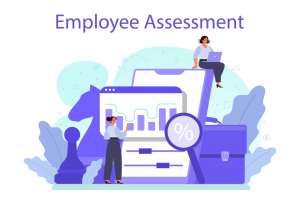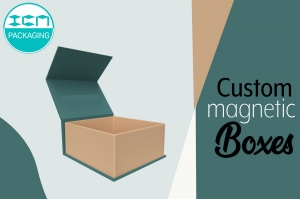Cars are an essential part of our daily lives, but sometimes they can break down or experience issues. Knowing the common car problems, their causes, and how to handle them can help you avoid frustration and keep your car running smoothly. This article will explore the causes of common car problems and provide tips on how to address them.
Common Car Problems and Their Causes
Cars can face a variety of issues, ranging from simple problems to more complex ones. Understanding these problems can help you take quick action and avoid further damage. Below are some of the most common car problems and how you can handle them effectively.
My Car Shut Off While Driving and Won't Start
One of the scariest experiences a driver can face is when their car shuts off while driving and won't start. Several issues can cause this, including:
- Fuel System Problems: Running out of fuel or a malfunctioning fuel pump can cause the car to shut off.
- Battery Issues: A weak or dead battery can cause the engine to stop, especially when driving at higher speeds.
- Ignition System Failure: A faulty ignition switch or starter motor can prevent your car from starting after it shuts off.
If you find yourself thinking, "My Car Shut Off While Driving and wont start," the first thing to check is the fuel level. If the fuel is fine, try jump-starting the car. If these steps don't work, it's best to call a mechanic for assistance.
Overheating Engine
An overheating engine can cause significant damage if not addressed quickly. The most common causes of an overheating engine include:
- Low Coolant: If the coolant level is low, the engine may overheat. Check the coolant level regularly and refill when necessary.
- Faulty Thermostat: A broken thermostat may prevent coolant from flowing properly, causing the engine to heat up.
- Water Pump Failure: The water pump circulates coolant through the engine, and if it fails, the engine can overheat.
If your engine starts overheating, pull over to a safe spot and let the engine cool down. Check the coolant level, and if it's low, refill it. If the problem persists, consult a mechanic to check for thermostat or water pump issues.
Flat Tires
Flat or damaged tires are a common issue that many drivers face. They can occur unexpectedly and cause major inconvenience. Here are some common reasons for flat tires:
- Punctures: Nails, glass, or sharp objects on the road can puncture a tire, leading to a slow leak or complete flat.
- Worn-out Tires: Tires lose tread over time, making them more susceptible to damage and punctures.
- Under-inflated Tires: Driving with under-inflated tires can lead to flats or even blowouts.
To handle a flat tire, make sure you have a spare tire and the necessary tools to replace the damaged one. If you don't have a spare, contact roadside assistance for help.
Electrical System Problems
If your car's electrical systems start malfunctioning, it could be a sign of a larger problem. Some electrical issues include:
- Flickering Lights: If your headlights or dashboard lights flicker or dim, it could indicate a problem with the alternator or battery.
- Malfunctioning Electrical Accessories: If your radio, air conditioning, or other electrical components stop working, it may be due to a blown fuse or wiring issue.
- Dead Battery: A weak or dead battery can cause your car to struggle when starting.
If you notice electrical problems, check the battery for any signs of damage or corrosion. If the battery seems fine, have the alternator and fuses checked by a professional.
Brake Issues
Brakes are critical for your safety, and if they start to malfunction, it's important to address the issue immediately. Common signs of brake issues include:
- Squeaking or Grinding Noises: If you hear a high-pitched squeal or grinding when braking, it may be time to replace the brake pads.
- Reduced Stopping Power: If your car takes longer to stop or feels less responsive, the brake pads may be worn out.
- Vibrations When Braking: Vibrations in the brake pedal can indicate issues with the brake rotors.
If you experience any of these symptoms, have your brakes checked immediately. Regular maintenance is key to ensuring your brakes stay in good condition.
My Car Shut Off While Driving and Won't Start – What Should I Do?
If your car shuts off while driving and won't start, follow these steps to troubleshoot and address the issue:
- Pull Over Safely: If your car shuts off while driving, immediately pull over to the side of the road. Turn on your hazard lights to alert other drivers.
- Check Fuel Level: Ensure that your fuel tank is not empty. Sometimes the simplest solution is the correct one.
- Try Jump-Starting: If you suspect a dead battery, try jump-starting the car with jumper cables. If this doesn't work, the battery may need to be replaced.
- Call for Help: If the issue persists, it's best to call for roadside assistance or a tow truck. A mechanic can diagnose the problem and fix it for you.
Preventing Car Problems and Maintaining Your Vehicle
Preventing car problems is easier than dealing with them after they happen. Regular maintenance can go a long way in keeping your car in good condition. Here are some key maintenance tips:
- Check Oil Regularly: Ensure that the engine oil is at the right level and change it according to the manufacturer's recommendations.
- Inspect Tires: Check tire pressure regularly and inspect tires for signs of damage or wear.
- Maintain Cooling System: Regularly check coolant levels and ensure there are no leaks in the cooling system.
- Battery Maintenance: Inspect the battery for corrosion or damage, and replace it if needed.
By staying on top of your car's maintenance, you can prevent many common problems from occurring.
Conclusion – Understanding Car Problems and Their Solutions
Understanding the causes of common car problems and knowing how to handle them is essential for every driver. Whether you face issues like your car shutting off while driving, overheating, or flat tires, staying calm and knowing what to do can help you manage the situation. Regular maintenance and quick action are key to avoiding expensive repairs and ensuring that your car runs smoothly for years to come.






